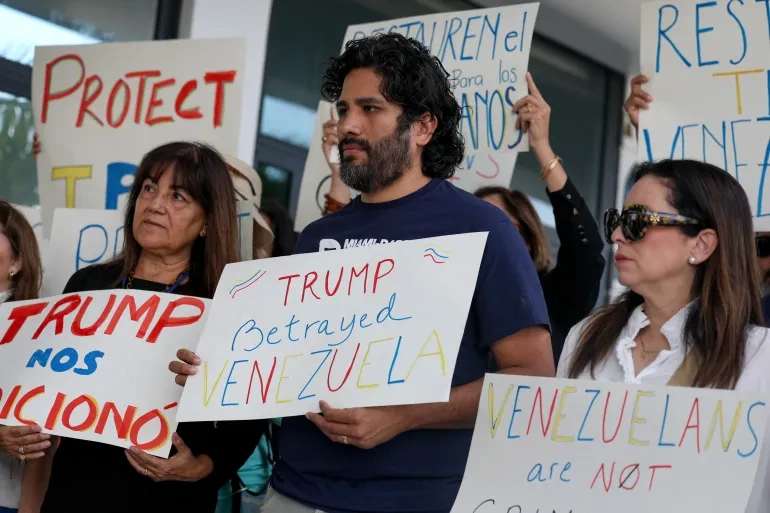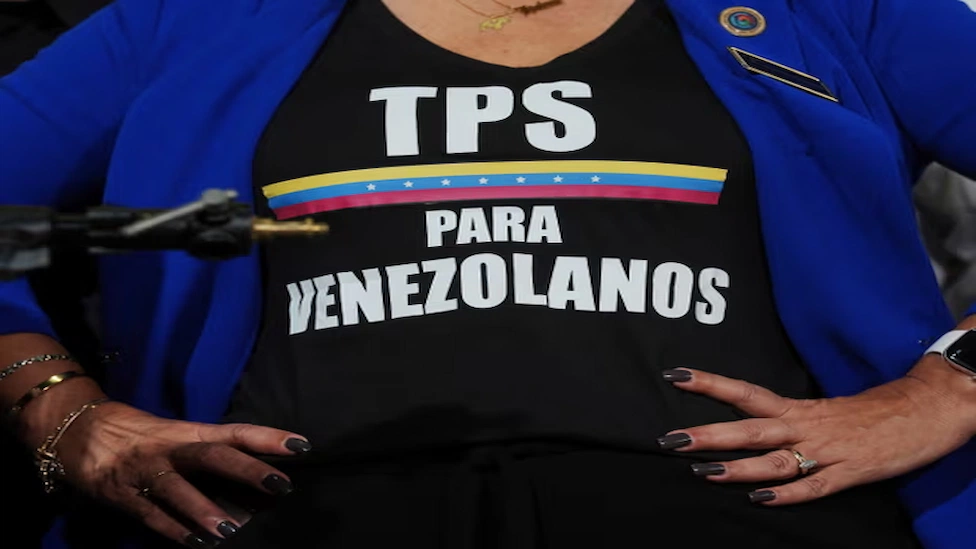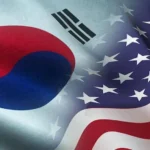TPS Immigration Crackdown: TPS Immigration Crackdown: The Trump administration is pushing to end TPS immigration crackdown protections for thousands living legally in the U.S. The latest decision impacts Haitians, Venezuelans, Afghans, and Cameroonians.
These immigrants had stayed in the U.S. under Temporary Protected Status (TPS) due to crises in their home countries. A Supreme Court ruling on Monday cleared the way for the government to end these protections. Many immigrants now fear deportation. The move reflects a broader shift in U.S. immigration policy, targeting not only TPS but also humanitarian parole programs.
Also Read | Trump Ends TPS for Venezuelans as Supreme Court Rules in His Favor
TPS Immigration Crackdown: Insights
- The Trump administration plans to end TPS for Haitians, Venezuelans, Afghans, and Cameroonians.
- Over 9,000 Afghans and half a million Haitians could lose legal status in the U.S.
- TPS allows people to stay temporarily due to war or natural disasters in their home countries.
- The Supreme Court allowed the end of TPS for 350,000 Venezuelans.
- TPS does not lead to citizenship and must be renewed every 18 months.
- Humanitarian parole for 530,000 people from CHNV countries is also under review.
- A federal judge temporarily blocked the end of the parole program.
- The next court hearings are scheduled for late May and mid-July.
Background
The TPS immigration crackdown has become a key part of recent changes in U.S. policy. TPS allows foreign nationals to stay temporarily if their home country is unsafe. The Biden administration had expanded TPS to cover many nations. Yet, the Trump administration is rolling back those protections.
Critics argue that ending TPS could cause mass deportations and harm the U.S. economy. In 2021, TPS households earned over $10 billion and paid $1.3 billion in federal taxes. The debate reflects broader divisions over how the U.S. handles legal but temporary immigration protections.
Main Event
The Trump administration has begun dismantling TPS protections for immigrants from several countries. People from Haiti, Venezuela, Afghanistan, and Cameroon are most affected. TPS was designed for people already in the U.S. whose home countries are in crisis. It gives them the right to stay and work legally for 18 months, with possible renewals.
In a major blow, the Supreme Court allowed the end of TPS for around 350,000 Venezuelans. They had been granted this status in 2021 by the Biden administration. In January, protections were extended to 2026. However, the Trump administration pushed to cancel them by April. A lower court had blocked the move, but the Supreme Court lifted that order. Now, many TPS holders face deportation risks.
Meanwhile, humanitarian parole is also under threat. This program allows temporary entry for urgent needs like medical emergencies. About 530,000 people from Cuba, Haiti, Nicaragua, and Venezuela are part of this program. In March, the Trump administration said it planned to end it. A judge paused the decision, but the administration took the case to the Supreme Court.
The government argues that current lower-court rulings limit the Department of Homeland Security’s power. The case returns to lower courts with key hearings expected between May 29, 2025, and July 11, 2025. The TPS immigration crackdown may impact thousands who have built lives in the U.S.

Protesters gather in Miami, Florida, on February 13, 2025, calling for the reinstatement of Temporary Protected Status (TPS) for Venezuelan migrants.
Photo Credits: Joe Raedle (Getty Images via AFP).
Also Read | Trump Immigration Fines Shock Low-Income Migrants with Penalties Up to $1.8 Million
Implications
The TPS immigration crackdown could deeply affect thousands of immigrant families, many of whom have lived in the U.S. for years. It may lead to mass deportations, family separations, and community instability. Employers who rely on TPS holders might also face labor shortages.
Immigrant advocates say ending protections will hurt the economy and disrupt lives. The legal battles could also impact U.S. foreign relations, especially with countries in crisis. On the political front, immigration remains a divisive issue.
The outcome of the hearings will shape future policy on how temporary legal statuses are handled in the country.
Conclusion
The TPS immigration crackdown signals a major shift in U.S. immigration policy. Legal protections once seen as lifelines are now under serious threat. With upcoming court hearings and political debate growing, the future of TPS and humanitarian parole remains uncertain.
Many immigrants and their families are now in limbo, waiting for legal clarity and hoping for relief from potential deportation.



